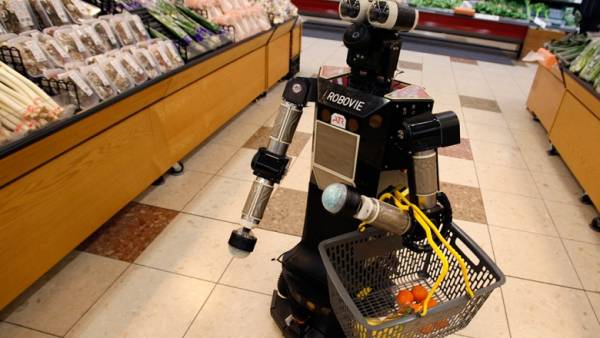The caste of the unemployed. Robots would deprive impoverished people the last money
Active introduction of robots would be beneficial for the economy as a whole, but will increase social inequality, the IMF forecast. Experts believe that due to the further automation of the labour of the poor will become even poorer.

Experts of the International Monetary Fund (IMF) assessed the possible consequences of automation for the global economy and social equality. The findings were disappointing: despite the fact that robotics increases productivity and leads to growth of GDP, almost all the scenarios it leads to increased social inequality.
According to the IMF report, the replacement of people with robots can lead to falling wages and, consequently, to increased social stratification. And the stronger robotics will contribute to GDP growth, the less equitably distributed will be distributed the income, the IMF said.
To go such a bundle may be in two directions, specified in the report. The first option will increase the difference between capitalists and workers, and the second will be more distance between skilled and unskilled workers.
The wide spread of artificial intelligence will lead to a worsening situation of the poor, even if robots replace human labor not available in all areas. If, for example, will be replaced by the labor of low-skilled workers, will suffer not only this category of workers, but also the so-called “blue collar workers”, whose income could be reduced by about 26-56%, follows from the report.
Waiting catastrophically fears are expressed for the first time. The most inveterate pessimists, like the Israeli historian Yuval Noah Harari, suggests that the introduction of robots in the work process will lead to the division of mankind into two castes: the class possessing power “superhumans” and a class of people “useless”.
According to a recent study from the McKinsey global Institute, in 2030, to lose a job due to the introduction of automated systems may from 400 million to 800 million people.
Risks of growth of unemployment scare politicians in earnest, and in different countries for devising measures to combat the negative effects of automation. For example, in Finland, from January 2017, the experiment was conducted on payment of 2,000 citizens a mandatory unconditional income of €560 per month.
The news In America, opened a restaurant, where the food is prepared by robots
In America, opened a restaurant, where the food is prepared by robots
These payments guarantee earnings to all who have been affected, including the automation of labour. Another bright initiative came from deputies of the European Parliament, in 2016 has proposed to tax owners of robots with a special tax that would have been used as a social payment to those who lost due to the introduction of robots work.
Who will suffer
Growth uneven distribution of income between rich and poor is a global trend, explains partner and head of operational efficiency at KPMG in Russia and the CIS Elena Ustyugova. Because automation is actively contributing to the enrichment of the owners of these machines, it also will inevitably lead to even greater inequality, says the expert.